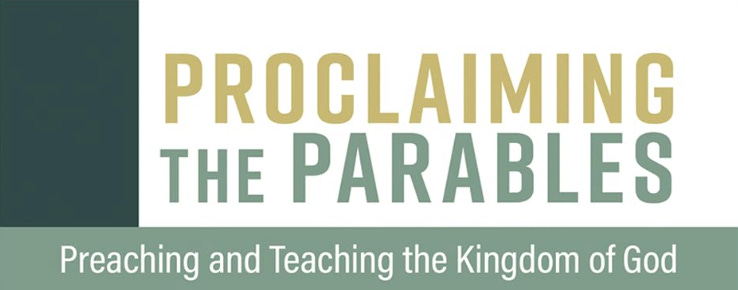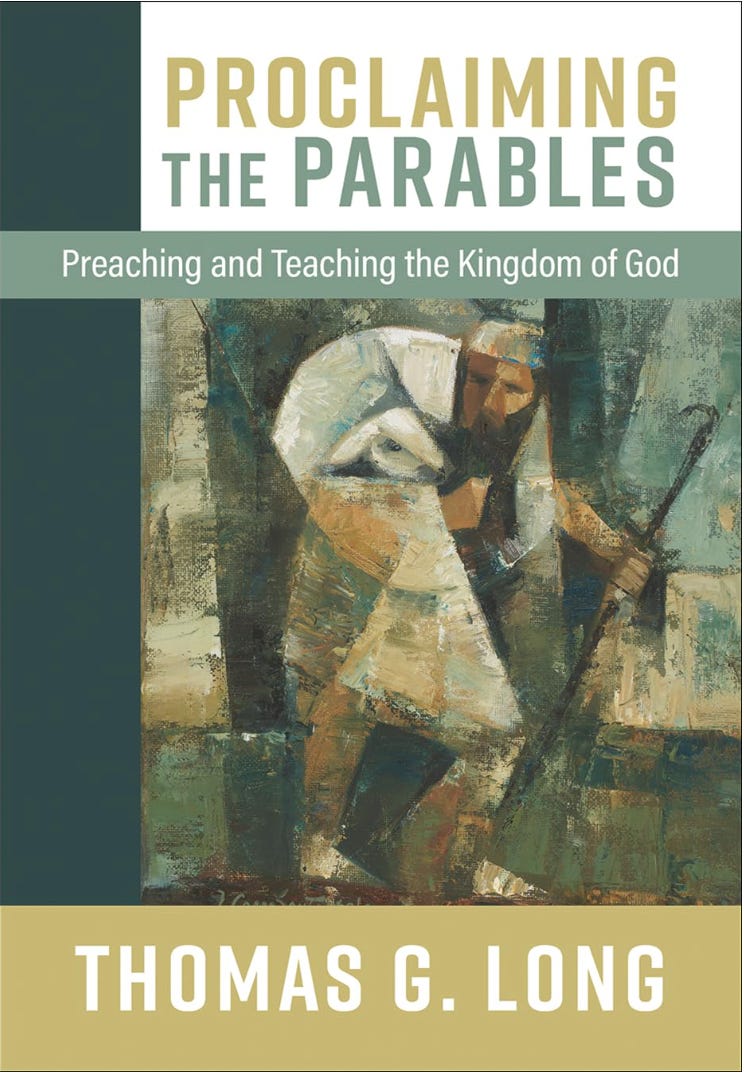Four Decisions
Before speaking about a parable, what decisions need to be made?
If we could but retrace our personal history, we would be surprised by decisions that we have made that profoundly impact our Bible reading. Some of the decisions we have made have been theological, some historical, some methodological, some ecclesial, and yet others have been identifying ourselves with a group.
What decisions impact us when we read parables? Thomas G. Long’s new book, Proclaiming the Parables, suggests there are four major decisions we need to make in order to read parables well and speak about them intelligently.
First decision. Our decision on the definition of a parable. Long’s definition: “A parable is a literary performance in which a story, example, or image from our world of experience or imagination is compared to God's kingdom.”
Noticeably, he takes issue with Dodd and Crossan. The former defines a parable like this: “At its simplest, the parable is a metaphor or simile drawn from nature or common life, arresting the hearer by its vividness or strangeness, and leaving the mind in sufficient doubt to its precise application to tease the mind into active thought.” The latter operates with less definition and greater suggestion: a parable is a “poetic metaphor.” Crossan of course works this out over the pages of essays, articles, and books.
Neither presents an adequate definition according to Long, and so he leaves this discussion of definition, which is a decision for each of us, with this: “A good definition of parables ought, it seems to me, to be a basket big enough to hold the parables actually given to us in the New Testament, not a filter to screen out what is unacceptable to the interpreter.” By the way, a recent academic monograph, which I have not read, contends that a parable by definition is a fable.
Second decision. Anyone who knows about historical Jesus studies, knows that the game that scholars play is a game about what is authentic and what is inauthentic. So a second decision that needs to be made is whether a person will read and interpret and preach and teach the parables as we get them in the Four Gospels or the parables as we think Jesus originally gave them.
I give an example from my own experience. In touring Israel, occasionally tour guides will explain a parable of Jesus on the basis of reconstructed original language, leading to a significantly different interpretation than what one would see in the Greek text or in an English translation. These tour guides are interpreting the parable as reconstructed in the supposed original language spoken by Jesus.
Long takes issue with the historical Jesus approach to reconstructing the original parable, which is always either slightly less than our Gospels or, in essence, a lot less or a lot different. His reasoning includes:
(1) “The parables as they appear in the canon are the church’s Scripture… as opposed to the speculative proto-Scripture we imagine we can construct.”
(2) The results of the scholarly quests “have had, at best, mixed results.”
(3) There is an assumption that “the Gospel writers did damage to Jesus original message… [and so] weren't faithful transmitters of the gospel, but manglers of it.”
If we read and interpret the parables as they appear in the New Testament, we will be drawn into the diversity of the presentation of the parables and into the literary and historical context of each parable. Long challenges William Herzog’s socio-materialist interpretations of Jesus and therefore the parables. His wording is quotable: “But this atheological Jesus who glided around Galilee using coded God-talk purely as a device to raise the political awareness of Galilean peasants about the brute facts of Roman imperialism is finally a creature of Herzog's fantasy.” I want to commend his choice to interact with Herzog. Long has taught preachers his entire life, and he knows that the agendas in the scholarly academy don't always play well behind the pulpit.
Third decision. When we read the parables in order to teach them or preach them, we need to make a decision whether we are going to explain the parable or proclaim the parable. I probably lean toward the explain spectrum. But he makes a very important point. Of course, preaching on a parable requires some explaining. But we need to recognize that the parables of Jesus packed a punch, and without that punch we are unfaithful to the parables of Jesus. I quote Long:
“Somehow people shouting, ‘Lock him up!’ after Jesus told a parable seems quite different from a parishioner pausing at the church door to say, ‘I really appreciated how you explained that business about the seed and those different soils. Never thought of it that way before’.”
In proclaiming parables we need to enter the space of the theological vision of the Kingdom as breaking into our world. That’s what Jesus’s parables did, and that's what the proclaimer does today. The explainer explains it and the proclaimer proclaims it.
Fourth decision. A decision that we have to make, as we read the parables and teach them, pertains to the time of the Kingdom. Is the Kingdom already present, totally in the future (and for many the eschatology of Jesus was imminency, with the discomforting and often unsaid implication that he was just plain wrong), or is it both? Long opts for both.
In discussing time, Long enters into the discussion of the philosophy and science of time. As I read him, he sees God as timeless but we experience the Kingdom of God as having a past, a present, and a future. But in those moments when we catch glimpses and experience the reality of the Kingdom of God, we enter into the timelessness of the kingdom of God.




Thanks for posting about this book. Tom Long has done several continuing education events at Duke Divinity School over the years. He is the best preacher and lecturer I've ever heard.
Thank you